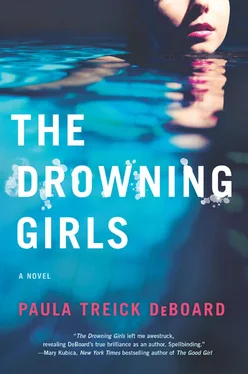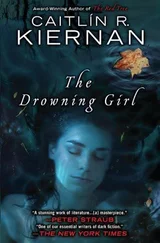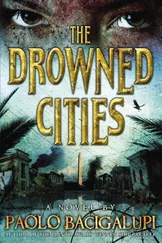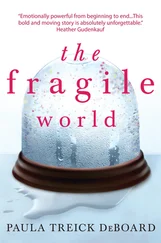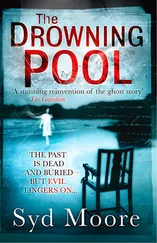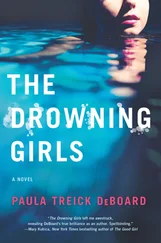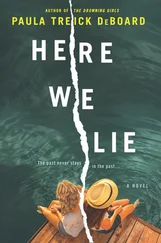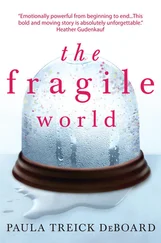1 ...8 9 10 12 13 14 ...17 “Oh, no, you’ll definitely want to see Antigua,” I gushed. Phil kicked me under the table, and I managed not to laugh until she was safely out of the room.
I wrote to Allie, trying to capture what I couldn’t say out loud, not even to Phil. There’s a garden club, but they don’t actually get their hands dirty. They just vote on what annuals the gardeners should plant in the public areas. It didn’t take me long to realize that just about everything was outsourced at The Palms—child care and housekeeping and cooking, the running into town to grab something from Target. Deanna’s hair stylist came to her house before parties; Janet once referred to a personal shopper who bought her clothes for the entire season with one swipe of the debit card.
These women, I thought, amazed again at every turn. They were like modern-day fairy-tale princesses.
Phil was busy overseeing the final phase of construction at The Palms, sixteen luxury homes overlooking the foothills of the Altamont with its famous giant wind turbines. The community trail had been slightly rerouted to loop around the new construction, and a green area with a gazebo and outdoor kitchen was being added, so there were plans to approve and contractors to supervise. Phil was in his element, rushing between projects, keeping things on course. I joked with Allie that he was a politician on the campaign trail, shaking hands and trading good-natured hellos with anything that moved.
For their part, our neighbors treated him like a benevolent god, as if he could simply wave a hand and cause things to appear—new sprinkler heads, new bulbs in the carriage lights that lined The Palms’ cul-de-sacs. The women worshipped him; more than once, Janet laid a hand on my arm, saying, “He’s just an absolute doll, isn’t he?”
Phil grimaced when I repeated this to him. “That’s a compliment? A doll?”
“Well, they adore you, anyway.”
He shook this off, as if the attention were merely annoying. “They adore bossing me around. They like having me at their beck and call. It’s not exactly the same thing.”
Still—I noted it. Heads turned as he walked through the clubhouse; women touched him on the arm, the shoulder, the back; they laughed loudly at everything he said; they swooned over his accent. Even the dining room employees said g’day; asked if they could get him a draught or a burger with the lot. Phil treated all of them to the same generous dispensation of his time, the same friendly smile and listening ear. Maybe at times I was a bit jealous, or even a bit possessive, but I didn’t say anything to Phil. That would have given the issue more attention than it deserved.
It’s the accent, Allie speculated over email.
No, it’s the fact that he jumps to their every whim. He pays more attention to them than their husbands do.
How much attention? Allie asked, and then followed up about ten seconds later with a smiling emoticon, so I would know the question was a joke. When I didn’t reply, she wrote, Hey—you know I’m an idiot, right?
Of course, I replied.
I wouldn’t have minded so much, but they were so beautiful, so shiny and healthy and smooth. And once the suggestion was there, I had a hard time shaking it. Allie’s comment had touched a nerve, opened an old wound. When I was eleven and Allie was fourteen, my father had an affair. I never knew any specifics or learned how my mother found out, but I remembered their argument late one night, the house reverberating with her question: Who is she? Then he’d slammed the door and driven away in his truck, and I’d climbed into Allie’s bed and we’d cried ourselves to sleep. The following night Dad was back, joining us at the table in his PG&E uniform. I’d never heard them mention it again.
Sometimes as an adult, I thought I understood the affair. My mother had been beautiful—was, still—but blindness had robbed her confidence. Terrified of mismatching her clothes, she only wore black—shirts, pants, shoes. Even in the house, she wore her dark glasses. One of my earliest memories was of watching her get ready for a party, not long before her diagnosis—a red dress, lipstick, her hair in giant curlers. Blind, she was uncomfortable leaving the house, and my father had to coax her to visit friends, to try a new restaurant. Over the years I wondered who his other woman had been, what she was like—exciting and adventurous, scared of nothing? Had she worn bright colors, high heels? Or had it simply been the allure of the outside world, someone who would have a drink with him after work, someone who would dance in the middle of a crowded bar and not care who saw her or what she looked like?
Let it go, I told myself when Deanna strutted past in her shorts and heels, when Janet winked at him from across the room. Being friendly is just part of the job. Besides, as the summer passed, the languid days blending together, I had another worry, from a problem I’d created myself. Kelsey had taken my first invitation to dinner as a standing offer, arriving at our house late every afternoon for a swim with Danielle. Afterward, they lounged next to the pool, ruining their appetites with chips and Popsicles, their bodies fueled by mysterious teenage metabolism. We grilled burgers or mixed taco salads for a late dinner, and then there was always something on TV, even if it was a rerun of an episode they’d seen a dozen times. When it grew late, and I started yawning and dropping hints, Danielle would ask, “Is it okay if Kelsey spends the night?”
Later, when their giggles woke me, I wondered how we had become Kelsey’s unofficial caretakers without so much as a word from her parents. Tim was some kind of attorney, and on the rare occasions when I bumped into Sonia, she was either just back from a trip or packing for her next one.
In the mornings, Kelsey was still there, appearing on the stairs in a skimpy tank top and a pair of men’s boxers, her hair tousled. When she stretched, her tank top rode up, revealing the same flat, tanned stomach that was on display every afternoon but somehow looked obscene before my morning cup of coffee.
“Morning, Mrs. McGinnis, Mr. McGinnis,” she yawned, stepping past us on her way to grab a carton of juice from the refrigerator.
At least Danielle was happy. She’d never had a friend like this, a bestie. Her middle school friends were self-described nerds, shrieking number-themed jokes at each other on our way to once-a-month Saturday math meets. What about that girl Gabby? I wanted to ask her. What about Estrella?
The truth was, I missed the old Danielle, the one who would play epic games of Battleship with me, who would read upside down on the couch, her legs draped over the back, occasionally calling out passages. Mom, did you know that...? Now her interests were the same as Kelsey’s—sharing YouTube videos, snooping on other people’s Facebook pages, ogling Glamour and TMZ. Almost overnight, what I’d feared most had happened. She’d grown up.
Oh, to be young, Allie said.
But I don’t think I’d ever been that kind of young.
* * *
Sometimes, just to escape the house, I took walks after dinner, when the sky was turning from blue to purple to black, the white windmills on the horizon fading to a ghostly gray before disappearing altogether. I met the Browerses regularly and nodded at Trevor’s complaints about water usage at The Palms; didn’t anyone care that California was in a drought? I agreed with him, of course, but it was hard to get too excited. We weren’t in California; we were on our own island. It was easy to believe that what happened elsewhere didn’t concern us at The Palms. One night I heard giggling around a corner and spotted Janet Neimeyer and her boyfriend, both barefoot and taking swigs out of a bottle of champagne. Another time, the house stuffy and stifling even at midnight, I expected to be the only one on the streets and was surprised when I heard the slap of tennis shoes behind me.
Читать дальше
